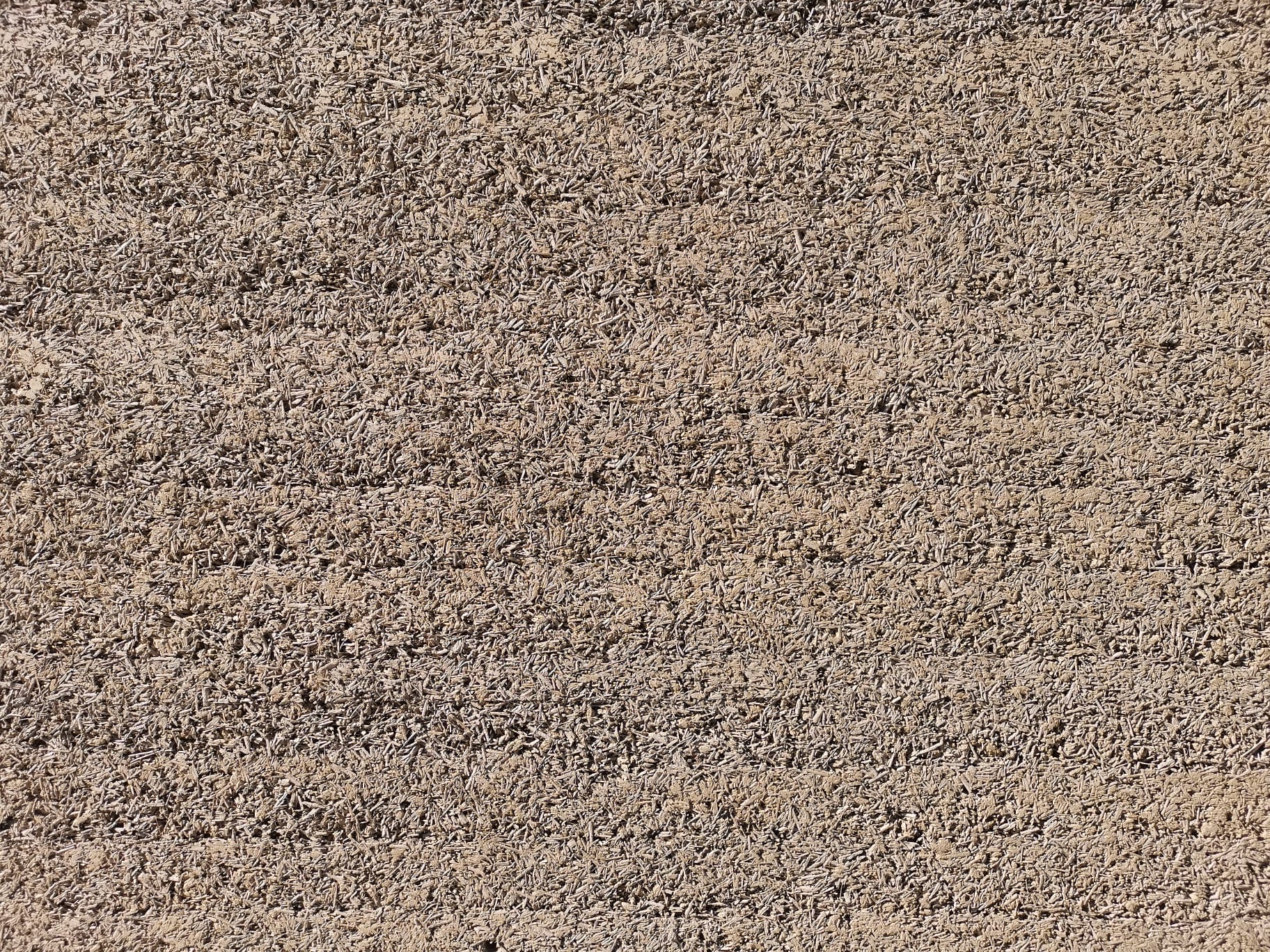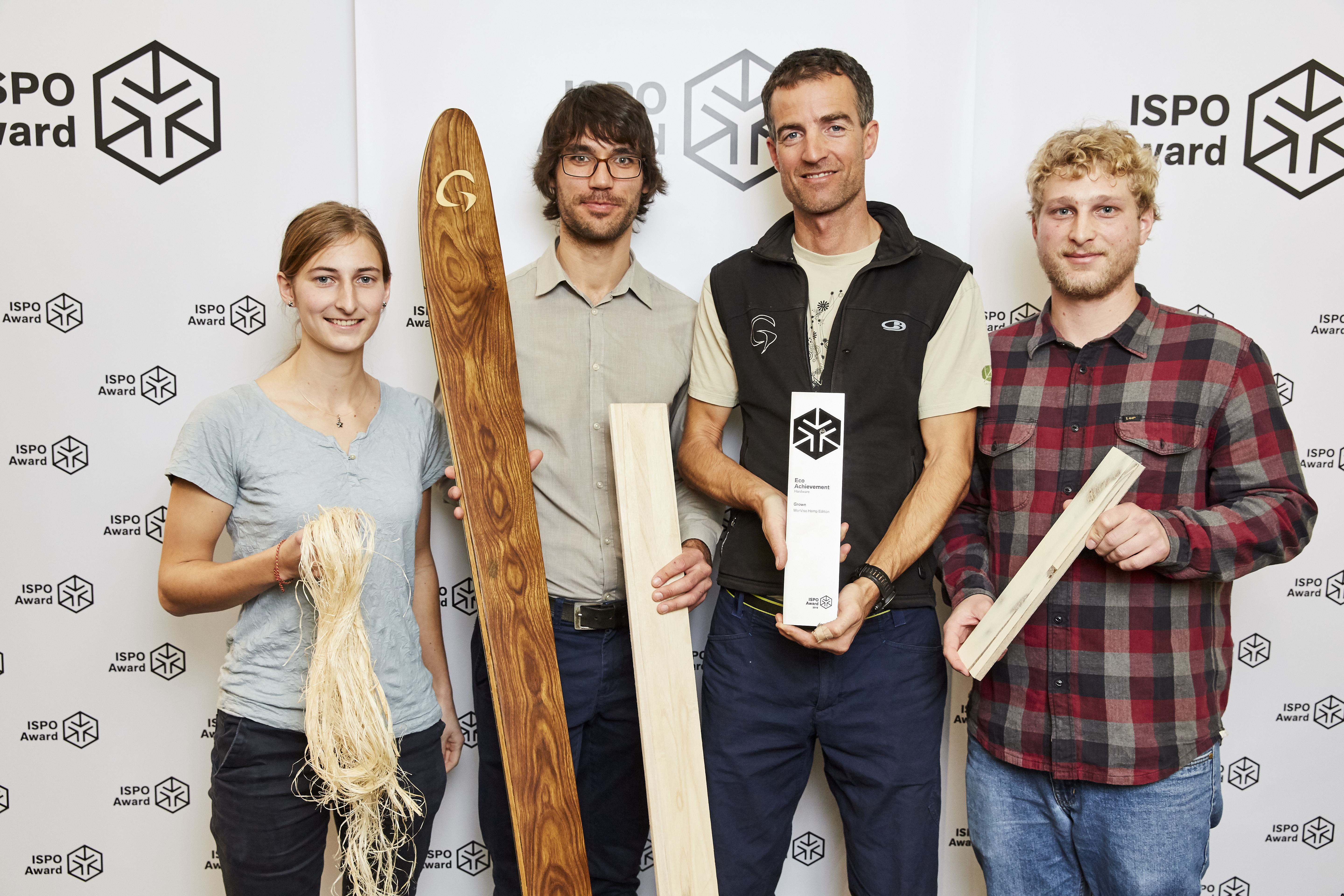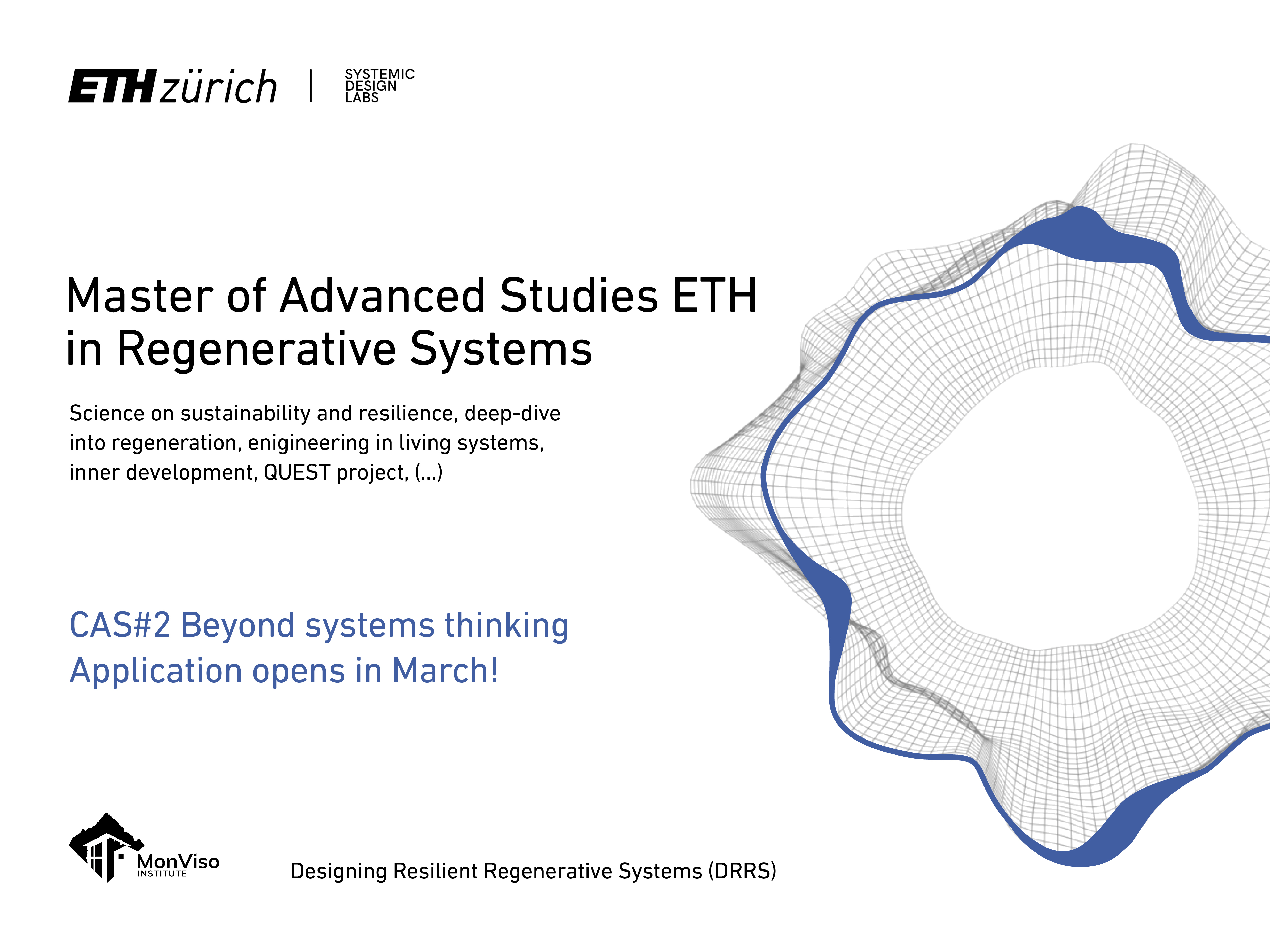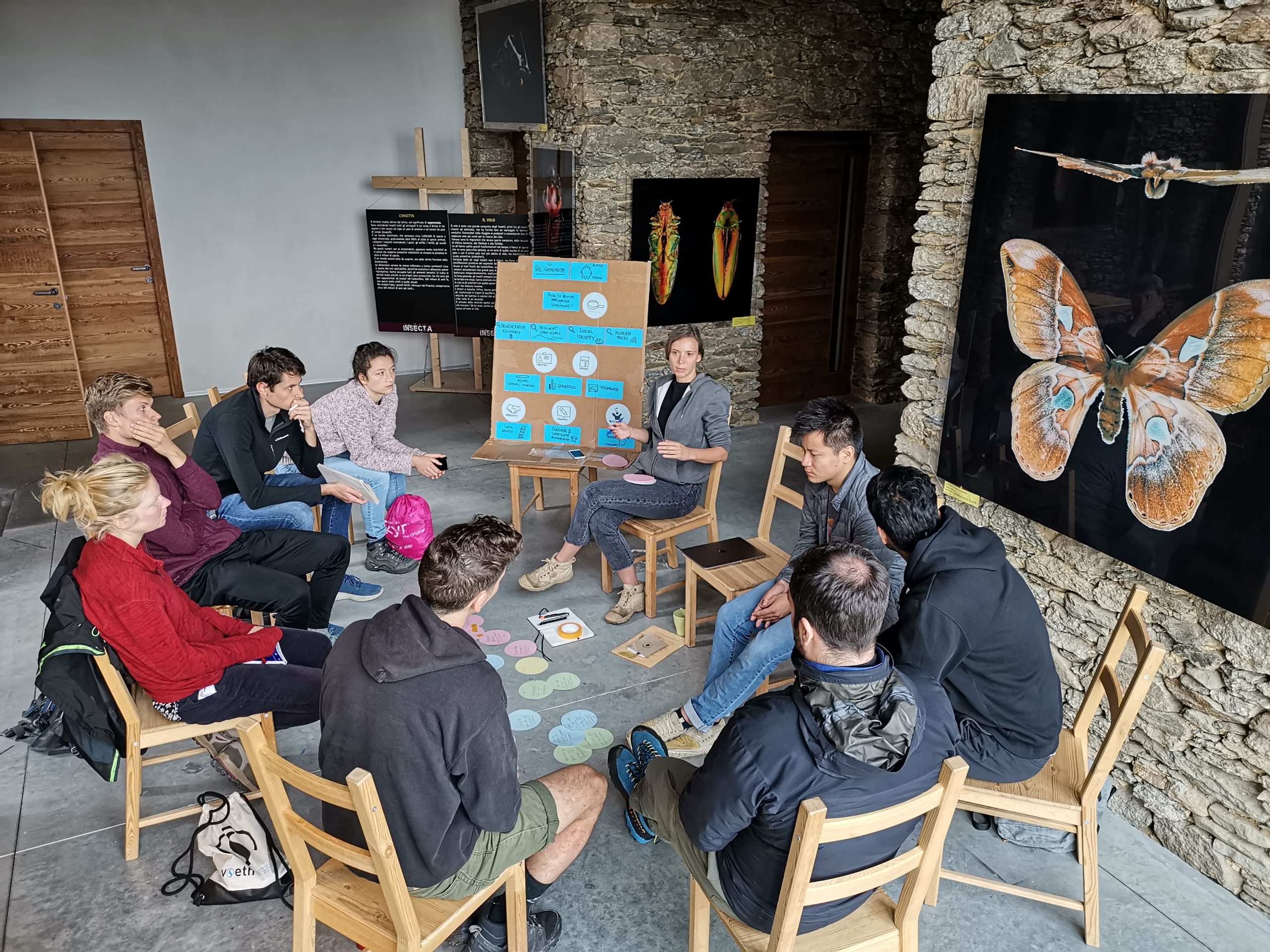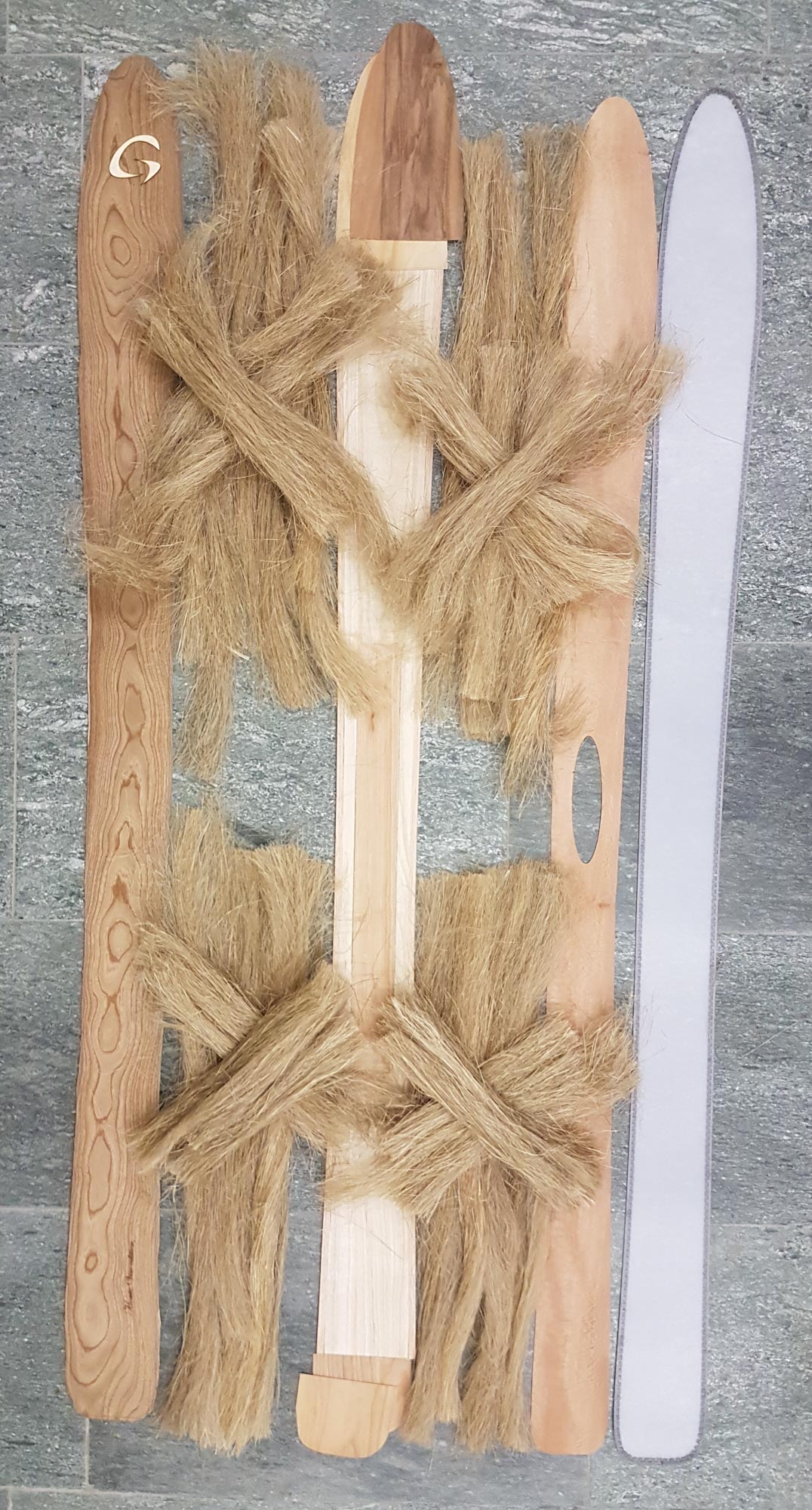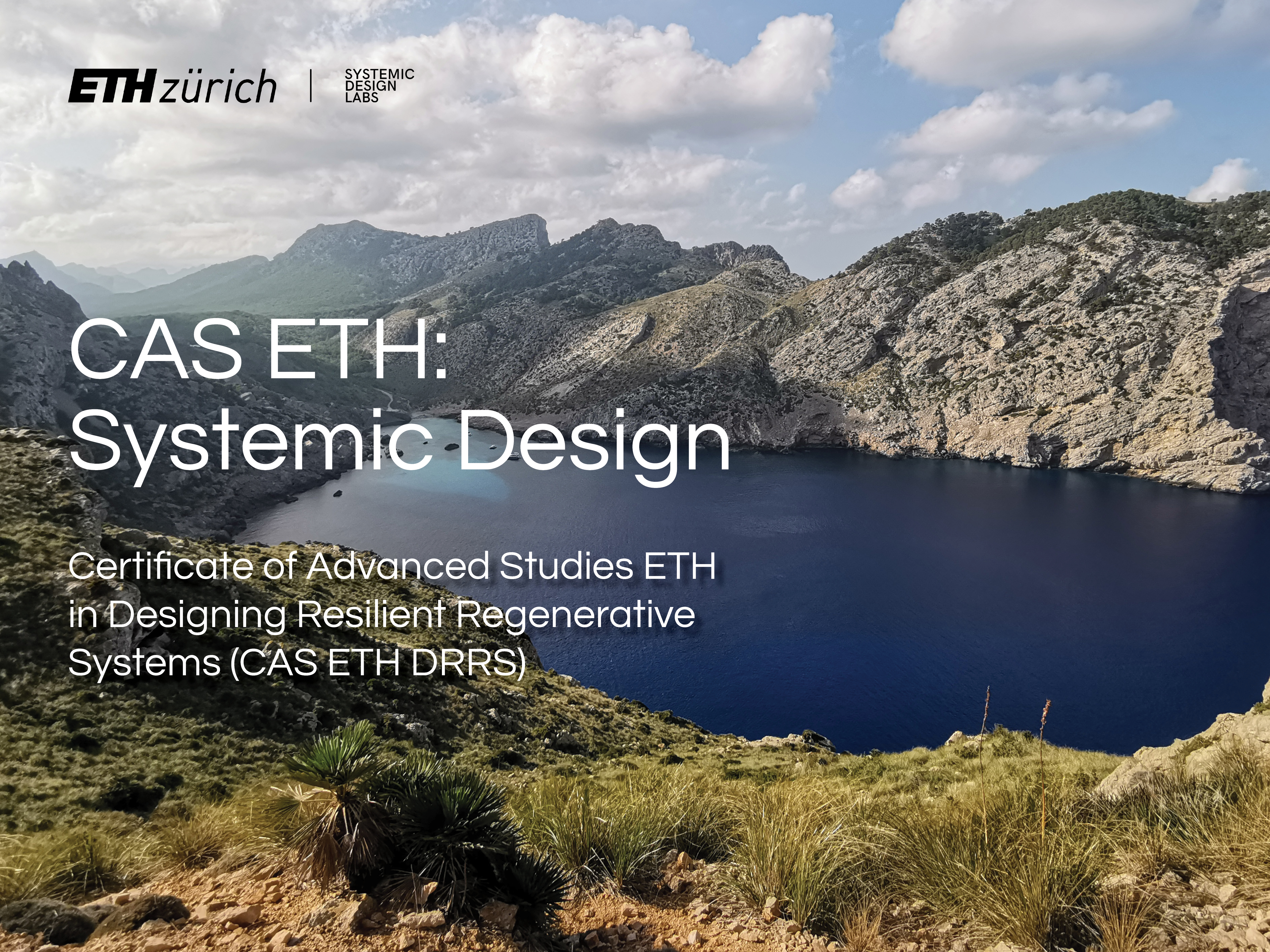DRRS MOOC 2: Beyond Systems Thinking
Our first iteration of the second Designing Resilient Regenerative Systems MOOC entitled “Beyond Systems Thinking” started in November 2022 on EdX.
In this MOOC we develop a critical understanding of what systems thinking entails and how it can become a helpful habit. The view from above contains techniques to deal with complexity, to zoom out of a system for zooming in on what matters most. We learn some basics of social network analysis and how to measure and interpret structures in networks, such as for resilience. We acquire an applicable toolset on i.e. the transformative potential of resilience, which leads over to an extended look into circularity, from a circular economy to five types of circular flows. Finally, we learn about systemic innovation, how to nudge complex systems to transform, and with what tools this may be possible.
Syllabus
Teacher-paced duration 14.11.22-29.01.23
Learn more about the DRRS MOOC series

